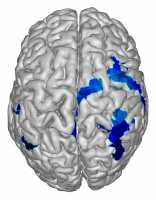Alzheimer's - Dementia, Author Interviews, Cognitive Issues, Memory, Surgical Research / 23.01.2021
Links Between Major Surgery, Amyloid and Memory Problems
MedicalResearch.com Interview with:
Pascual Sánchez-Juan, MD, PhD
Servicio de Neurología Hospital Universitario "Marqués de Valdecilla"
Unidad de Deterioro Cognitivo
https://www.facebook.com/deteriorocognitivovaldecilla
Director científico Biobanco Valdecilla
Avda Marqués de Valdecilla s/n
MedicalResearch.com: What is the background for this study?
Response: Alzheimer's disease is one of the greatest public health challenges. From the moment the first lesions appear in the brain to the clinical manifestations, up to 20 years can pass. Today we can detect the presence of these initial lesions through biochemical markers such as amyloid-β, which is one of the main proteins accumulated in the brains of Alzheimer's patients. The prevalence of cerebral amyloid-β pathology in cognitively asymptomatic individuals increases with age. It has been estimated that 21.1% of the population at the age of 65 will have a positive amyloid scan or a pathological cerebrospinal fluid (CSF) amyloid-β determination, and which will double by the age of 90.
Due to the aging of our societies and advances made in medical care, an increasing number of elderly and more fragile people are considered candidates for major surgery. In preoperative screenings, respiratory and cardiovascular functions are routinely checked; however, it is not commonly assessed how the brain is going to cope with the intervention.
In the clinic, the patient’s relatives frequently tell us that the memory problems began after a surgical procedure or a hospital admission. This posed us the following question: is this just a recall bias or has surgery triggered the appearance of the symptoms in a previously affected brain?” (more…)

















